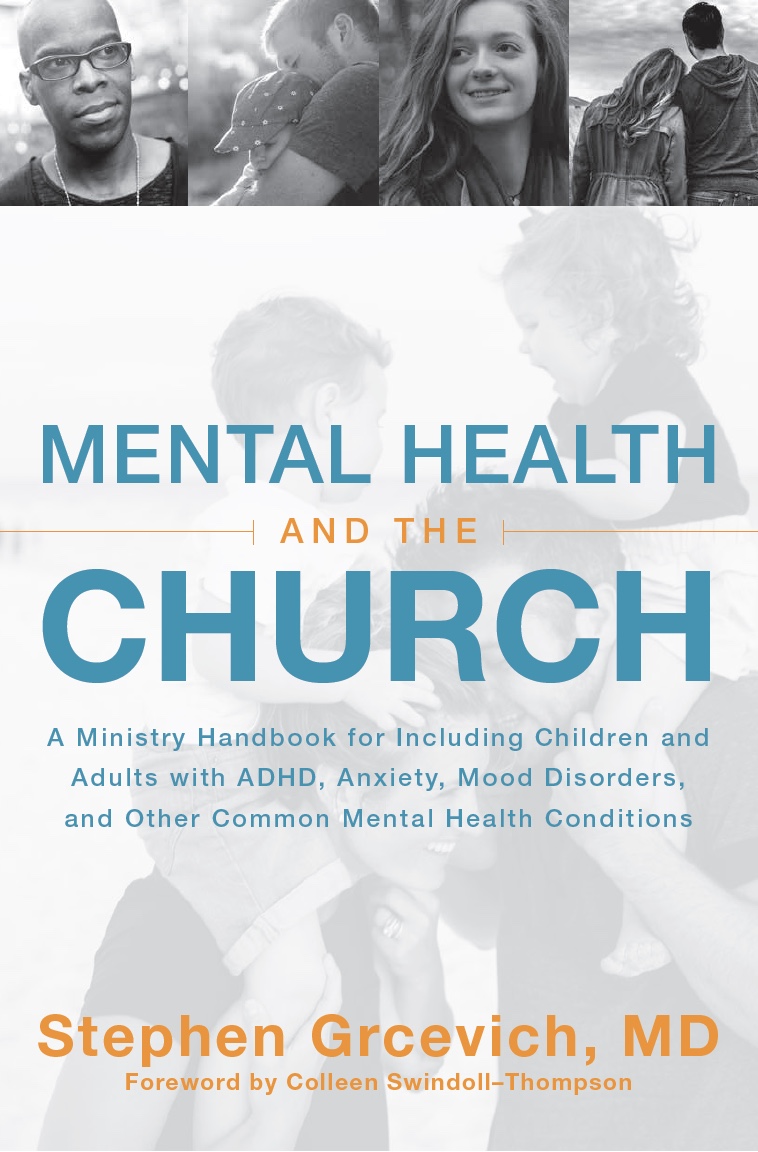
Editor’s note: Sergei Marchenko, pastor and husband of Gillian Marchenko is blogging for us today. Sergei looks at how we can make sense of the “joy of the Lord” in the context of depression. Here’s Sergei.
It is admittedly difficult to preach about the joy of the Lord to those who struggle with mental illness, particularly clinical depression. When a person for whom feeling happy is a medical impossibility hears biblical commands to rejoice always (and again I say, rejoice!) they often feel even more guilty over their lack of joy or ashamed of their failure as a Christian or angry at the preacher who doesn’t understand what they are going through. Should churches avoid such preaching? If we mean preaching that provides superficial answers to profound struggles, then my answer is yes. And here is a good place for me to ask those who struggle with mental illness to forgive me as a preacher for minimizing or misunderstanding your pain, for the lack of sensitivity and compassion, and for sometimes not even considering how a particular message might affect you. I am sorry. However, if we mean preaching on one of the dominant themes that is at the center or periphery of almost every promise or command in Scripture, well, I don’t think we should avoid it at all. I would like to share two things I am learning about the joy of the Lord.
First, our joy as commanded in Scripture is not merely an emotion. Joy is a disposition of the soul that often results in emotion but does not depend on it. Joy is an affection, to use an old Puritan term. A Christian has been so transformed that her heart has been reoriented toward God through the supernatural and mysterious work of the Holy Spirit. She is able to see God for who he is, even though that vision is still imperfect. She is moved to respond to that vision with reordered holy emotions, thoughts, and actions, even though the follow-through is never totally consistent while we are still part of the broken world. Clinical depression is part of the disintegration of creation which includes the human body. As a person with a broken foot cannot dance in worship, so a person with depression may not be able to express the emotion of happiness in the Lord’s presence. While we await complete restoration at Christ’s return, when our emotions, actions, and thoughts will be fully consistent with who God is and who we are as his redeemed creation, we can still experience the reality of the new orientation or disposition of the soul even now, however incompletely expressed. In other words, every Christian should be able to say truthfully that they are joyful in the Lord and at the same time that they do not feel joyful in the Lord. Both can be and often are true. Going back to my analogy of the would-be dancer with a broken foot, he can say that he is joyful in the Lord and that he is not able to dance joyfully.
 As a person struggling with mental illness reads Bible passages or hears sermons about being joyful, my encouragement is to take those commands as relating to a basic disposition of the soul toward God. Perhaps, it might be helpful to replace joy with such theological synonyms as satisfaction or rest or security or peace or acceptance. Do you have joy in the Lord? Do you believe God is on your side? Do you look to him for comfort? Are you turned toward him or away from him? Are you resting in his embrace? I think that even in the midst of depression Christians might answer yes to those questions.
As a person struggling with mental illness reads Bible passages or hears sermons about being joyful, my encouragement is to take those commands as relating to a basic disposition of the soul toward God. Perhaps, it might be helpful to replace joy with such theological synonyms as satisfaction or rest or security or peace or acceptance. Do you have joy in the Lord? Do you believe God is on your side? Do you look to him for comfort? Are you turned toward him or away from him? Are you resting in his embrace? I think that even in the midst of depression Christians might answer yes to those questions.
Second, our joy in the Lord is a reflection of the Lord’s joy in us. You see, the Lord rejoices, delights, exults in us. Like a father who cries and laughs at the birth of his baby, who claps at her first steps, who cheers her on from the stands, who brags about her to his friends, so does God feel about his children. The great news of the gospel is that broken people like us, confused, disobedient, forgetful people have been adopted into God’s family through Christ. Anyone who is in Christ, who has identified with him as their Redeemer by simple faith, is an adopted child with whom the Father is perfectly pleased. Not because of our virtues or moral achievements or religious commitments, but because of the Son’s sacrifice and victory on our behalf. And so it is biblically and theologically correct to say that God is as pleased with us as he is with his perfect Son Jesus. That kind of over-the-top joy of God in us can cut through our guilt and shame and pain and despair and isolation. The joy of the Lord (in us, through Christ) is our strength.
If we understand and accept this divine delight in spite of our very real struggle, something we call grace, we can be sure that our affections have been reordered and the soul’s disposition has been changed by his Spirit. And so we now have the joy of the Lord, however limited by mental illness might be its expressions. We can be joyful without necessarily feeling joyful because God delights in us through Christ.
Sergei Marchenko was born in Kyiv, Ukraine and grew up in a non-religious post-Soviet family. At 16 he was converted to Christ under the influence of American missionaries who lived next door and his call to full-time ministry came a couple years later during his first year of college. He currently serves as Lead Pastor of Chatham Bible Church in Hazelwood, MO. Sergei is married to Gillian (a writer and speaker), and they have four daughters: Elaina, Zoya, Polina and Evangeline. Polina and Evangeline, who was adopted from Ukraine, both have special needs.
In the midst of so many hormones at home, Sergei attempts to preserve his masculinity by following the National Hockey League, talking theology and history with friends, and finding interesting podcasts to download for afternoon runs. He also enjoys music, church, cooking and seeking out fun public parks to enjoy with his family.
Sergei graduated from Moody Bible Institute and Trinity Evangelical Divinity School, and is ordained in the Evangelical Free Church of America.
***********************************************************************************************************
 For Gillian Marchenko, “dealing with depression” means learning to accept and treat it as a physical illness. In Still Life she describes her journey through various therapies and medications to find a way to live with depression. She faces down the guilt of a wife and mother of four, two with special needs. How can she care for her family when she can’t even get out of bed? Her story is real and raw, not one of quick fixes. But hope remains as she discovers that living with depression is still life.
For Gillian Marchenko, “dealing with depression” means learning to accept and treat it as a physical illness. In Still Life she describes her journey through various therapies and medications to find a way to live with depression. She faces down the guilt of a wife and mother of four, two with special needs. How can she care for her family when she can’t even get out of bed? Her story is real and raw, not one of quick fixes. But hope remains as she discovers that living with depression is still life.
Still Life is available here in paperback and e-book from IVP Press. The Kindle edition is available at Amazon.





This is such a comforting blog entry by Dr. G., for someone like me who has suffered clinical depression. It is such an important distinction that what I believe in my heart, but am unable to feel emotionally, should not cause me guilt. So often scripture related to joy causes me to question my faith. When I am suffering, I simply cannot muster the emotion of joy, but I can turn to my Savior who sees and understands and comforts me and does not condemn. I only wish that other Christians understood this….
LikeLiked by 1 person
This is exactly the reason I started a blog; so even in my darkest times I won’t lose sight of the joy of the Lord. I want to document everything, that way I will never forget what he has done for me!
LikeLike
I’m probably in a minority, or maybe not. I had severe depression for five years and it took me 5 years to figure it out what was going on. Turned out that certain foods I was eating, about five of them, were plunging me into a black hole. I actually experienced guilt for no reason after eating sunflower seeds! After I ingested the allergen (this is not food intolerance), it took three days for my immune system to calm down. That’s it! My depression is 100% controllable, but if I slip, it is 100% unforgiving. My genetically low serum cholesterol adds to the severity of the depression.
I could not experience God’s joy. There was no time for that, and He understood. Now it’s just “avoid these foods.” I’ve never had reactive depression, so I can’t understand it.
LikeLike
Pingback: The joy of the Lord and clinical depression…Sergei Marchenko | Church4EveryChild - You Can Quit Now